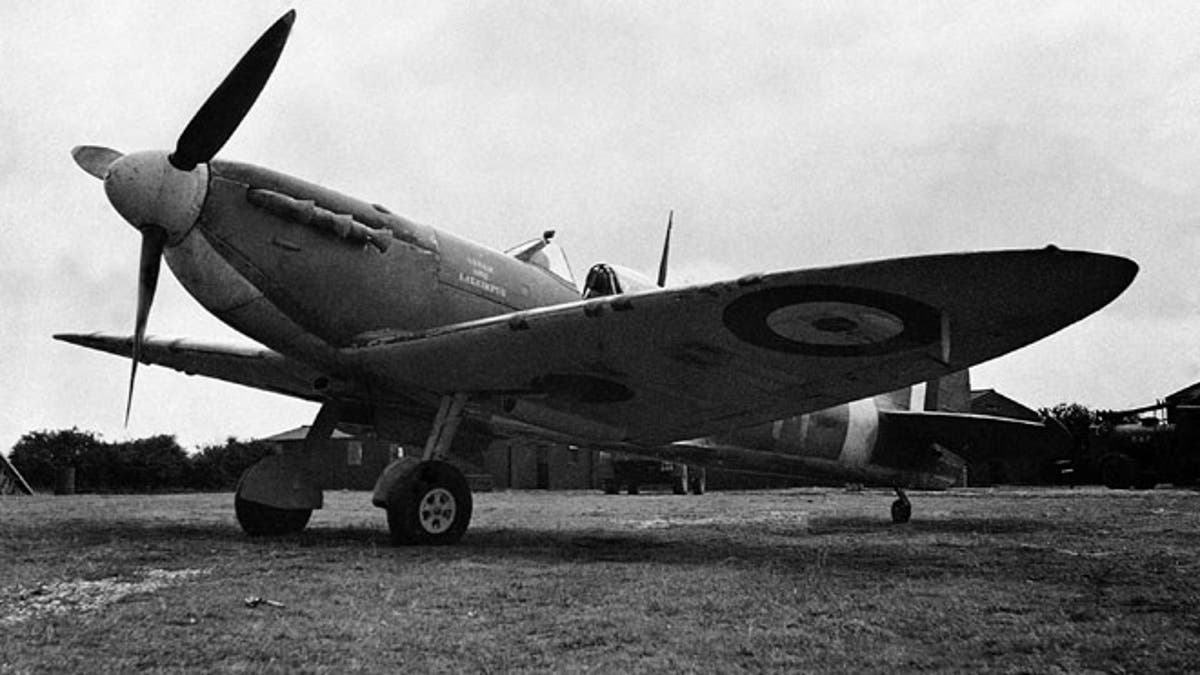
Sept. 28, 1941: In this file photo, Spitfires, subscribed for by the people of Assam, are now operating with fighter command of the Royal Air Force, at an airfield somewhere in England. Myanmar signed a deal with a British aviation enthusiast David J. Cundall to allow the excavation of a World War II treasure: dozens of Spitfire fighter planes buried by the British almost 70 years ago. (AP)
YANGON, Myanmar – Burma has signed a deal with a British aviation enthusiast to allow the excavation of a World War II treasure: dozens of Spitfire fighter planes buried by the British almost 70 years ago.
Aviation enthusiast David J. Cundall discovered the locations of the aircraft after years of searching. The planes are believed to be in good condition, since they were reportedly packed in crates and hidden by British forces to keep them out of the hands of invading Japanese.
The British Embassy said Wednesday that the agreement was reached after discussions between President Thein Sein and British Prime Minister David Cameron during his visit to Burma earlier this year.
The excavation of the rare planes is slated to begin by the end of October.
The Myanma Ahlin daily reported that the excavation agreement was signed Tuesday by Director General of Civil Aviation Tin Naing Tun, Cundall on behalf of his British company DJC, and Htoo Htoo, managing director of Cundall's Burma partner, the Shwe Taung Paw company.
[pullquote]
"It took 16 years for Mr. David Cundall to locate the planes buried in crates. We estimate that there are at least 60 Spitfires buried and they are in good condition," Htoo Htoo Zaw said.
"This will be the largest number of Spitfires in the world," he said. "We want to let people see those historic fighters, and the excavation of these fighter planes will further strengthen relations between Burma and Britain."
The British Embassy described the agreement as a chance to work with Burma's new reformist government "in uncovering, restoring, displaying these fighter planes."
"We hope that many of them will be gracing the skies of Britain and as discussed, some will be displayed here in Burma," said an embassy spokesman, using the old name for Burma.
Not everyone was pleased with the decision, however. The Boultbee Flight Academy, a British facility dedicated to the iconic plane, had hoped to aid in the recovery work.
"We are concerned that any Spitfires discovered under the current agreement could be dispersed with no long term value to either to Myanmar or the United Kingdom," a spokeswoman said.
"We hope that Mr. Cundall will confirm that at least some of any Spitfires excavated are put to use in building new cultural and educational ties between Myanmar and the United Kingdom.”
Burma has since last the past year turned away from many of the repressive policies of the previous military government and patched up relations with Western nations that had previously shunned it.
Myanma Ahlin cited Transport Minister Nyan Tun Aung saying the agreement was a milestone strengthening the friendly relationship between Burma and Britain and amounts to the British government's recognition of the democratic reforms of President Thein Sein's new government.
Cundall has said his quest to find the planes involved 12 trips to Burma and the expenditure of more than 130,000 pounds ($210,000).




















